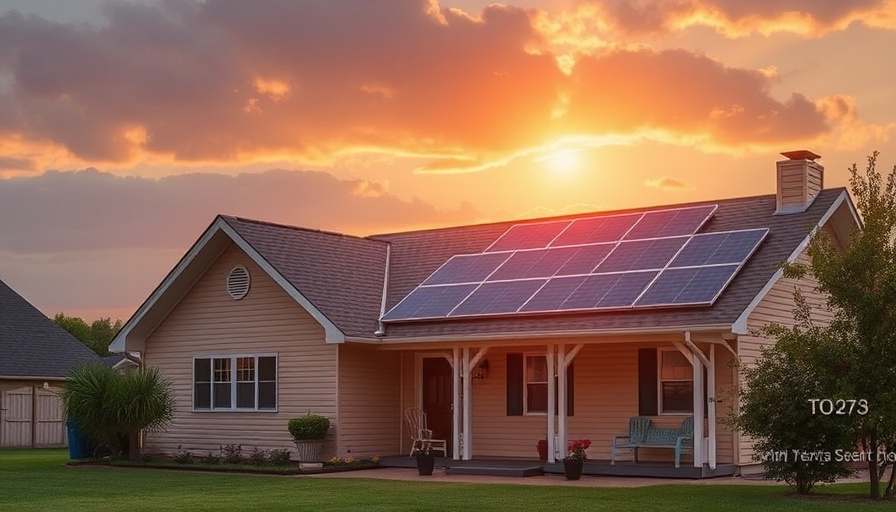
Understanding Solar Energy: A New Homeowner's Guide
As more homeowners recognize the financial and environmental benefits of solar energy, many are stepping into the sunlight for the first time. For those new to solar, the process can seem overwhelming. Navigating the intricacies of installation, cost, efficiency, and maintenance requires clarity and reassurance.
Benefits of Solar Energy for Homeowners
Solar energy provides a multitude of benefits, crucially the potential for long-term cost savings. Homeowners can lower their monthly energy bills significantly, and many can even offset their energy costs entirely. With the rise of net metering, any excess energy produced can often be sent back to the grid for credits. Additionally, solar panels can increase home values. According to recent studies, homes equipped with solar energy systems see a higher resale value—an attractive proposition for potential buyers.
Overcoming Common Misconceptions
Many new adopters harbor misconceptions about solar energy, particularly regarding its affordability and ease of installation. The initial investment can seem daunting, but federal and state incentives have made solar systems more accessible and cost-effective. Grants and tax credits significantly reduce financial burdens, helping homeowners make informed decisions about installations. Moreover, advancements in solar technology have lowered installation costs and improved system efficiencies, ensuring that more families than ever can benefit from solar energy.
Choosing the Right Solar System
When considering a solar installation, it’s essential to evaluate individual energy needs and available technologies. Homeowners can choose between various systems, including grid-tied, off-grid, and hybrid solutions. It's critical to engage with a certified contractor who can assess roof conditions, energy consumption, and suitable panel types to ensure the optimal setup. Additionally, using platforms that offer solar quotes can help streamline the process, enabling comparisons and facilitating informed choices.
Environmental Impact and Sustainability
For eco-conscious users, the transition to solar is equally a moral and practical choice. Utilizing renewable resources decreases reliance on fossil fuels, reducing greenhouse gas emissions. Shifting towards solar not only aids individuals in saving money but contributes broadly to combating climate change. According to various reports, the impact of solar energy adoption at scale can lead to dramatic reductions in carbon footprints, making this technology pivotal in the global transition towards sustainability.
Future Trends in Solar Energy
As solar technology continues to evolve, several trends will likely dominate the market: enhanced efficiency, energy storage solutions, and smart solar systems integrated with home automation. Battery storage technology, for instance, allows homeowners to store surplus energy and utilize it during peak hours, maximizing savings. Moreover, intelligent systems that connect with home networks are capable of optimizing energy usage based on real-time data, leading to even greater savings.
Next Steps for New Solar Owners
If you’re ready to embrace solar energy, the first crucial step is research. Familiarize yourself with local incentives and available technologies. Engage with community forums and local groups that share insights about their experiences with solar installations. Furthermore, considering the long-term benefits, think beyond immediate installation costs to assess the overall return on investment and environmental impact.
Take Control of Your Energy Future
Choosing solar is not merely a decision about energy consumption; it’s an investment in the future. Empower yourself to reduce costs and make a meaningful impact on the environment. The sunny path of sustainability is not only beneficial for your finances but the planet as well.
 Add Row
Add Row  Add
Add 



Write A Comment